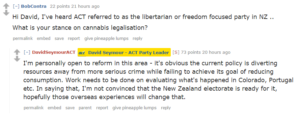
Missing an explosively terrifying opening batsman and a first drop with the hand-eye co-ordination of a god, the Australian cricket team came to New Zealand and got beaten 3-0. Prediction for this week? No, that was what happened the last time we were in that situation, in February 2007.
Building up for a later triumphant Cricket World Cup campaign, Australia rested both Adam Gilchrist and Ricky Ponting for the 2007 Hadlee-Chappell series in New Zealand, and got beaten 3-0.
Absent the usual steel up top, Australia disintegrated in the first ODI to Shane Bond, who took 5-23 from 9.3 overs, and they lost by ten wickets. Chasing 337 in the second ODI, New Zealand won after a brilliant Ross Taylor century and some dogged lower-order batting. Again chasing in the third, only that time 347, the Black Caps won in the last over with the last wicket after a 165-run 6th wicket stand between Craig McMillan and Brendon McCullum.
The 2017 edition of the Hadlee-Chappell will be absent David Warner – who recently took AB de Villiers’s crown as No. 1 ranked ODI batsman, and Steve Smith, who averages 51.90 since the start of 2015.
In the 2016 edition in New Zealand, the Black Caps took the series 2-1: Australia won a close game and was thumped twice. Something similar might be on the cards for this week.
Like 2007, the Australia of 2017 will possess some fearsome bowling. Mitchell Starc, Josh Hazlewood and Pat Cummins make up what must be close to the most dangerous trio ever seen in ODI history. Both Starc and Hazlewood are ranked in the top 5, and although Cummins is only ranked 27th that is a reflection of bad luck with injuries and not an absence of talent.
The Black Caps, for their part, have their own heavy artillery. Trent Boult is today the No. 1 ranked ODI bowler in the world, and Matt Henry is at No. 7. These two bowlers demolished the Australia top order in the first ODI of the 2016 series, leaving them at one stage 6/41.
Tim Southee might only be ranked 26th but he is dangerous with a bit of assistance, and Mitchell Santner is fast becoming like another Daniel Vettori in terms of miserly economy. This series will surely also feature more of Lockie Ferguson, who rocked the speed radar in Australia with a string of 150kph+ deliveries, but whose pace was often to the batsman’s advantage on the hard pitches.
The major difference between the two sides is in the batting. Australia’s best batsman in this series is arguably Glenn Maxwell, ranked 18th.
Because Australia is absent Warner at the top and Steve Smith ranked 8th, New Zealand have the top-ranked three batsmen in this match, with Kane Williamson at 5, Martin Guptill at 9 and Ross Taylor at 16. These three batsmen would all be in a Black Caps all-time ODI top 5.
Tom Latham may only average 33 in ODIs but appears to have now adjusted very well to the white ball game, and he is now averaging 40 in his last 25 ODI matches. As he is still only 24 and improving so rapidly in all forms of the game he is on a trajectory to become as good as the others.
Australia has brought in the reputable Aaron Finch to bolster the batting, but none of the names in the Australian top 5 – weak by historical standards even with Warner and Smith – will stand out to the Black Caps tacticians as a particular threat.
The obvious plan for the Black Caps to win the series, then, is to repeat how they won it in 2016, namely by bowling Australia out for substandard totals.
The market seems to think that this is very likely – the Black Caps are paying only $2.12 on BetFair to take the first ODI at Eden Park tomorrow. At the TAB a 3-0 Black Caps series win is paying only $6.50, which seems minuscule considering that Australia has won five Cricket World Cups.
Considering that the Hadlee-Chappell is fast becoming the ODI cricket equivalent of a marquee series like the Ashes or the Bledisloe Cup, probably the best strategy would be to save your betting money for chips and weed and just kick back to enjoy the degree of skill on display.




